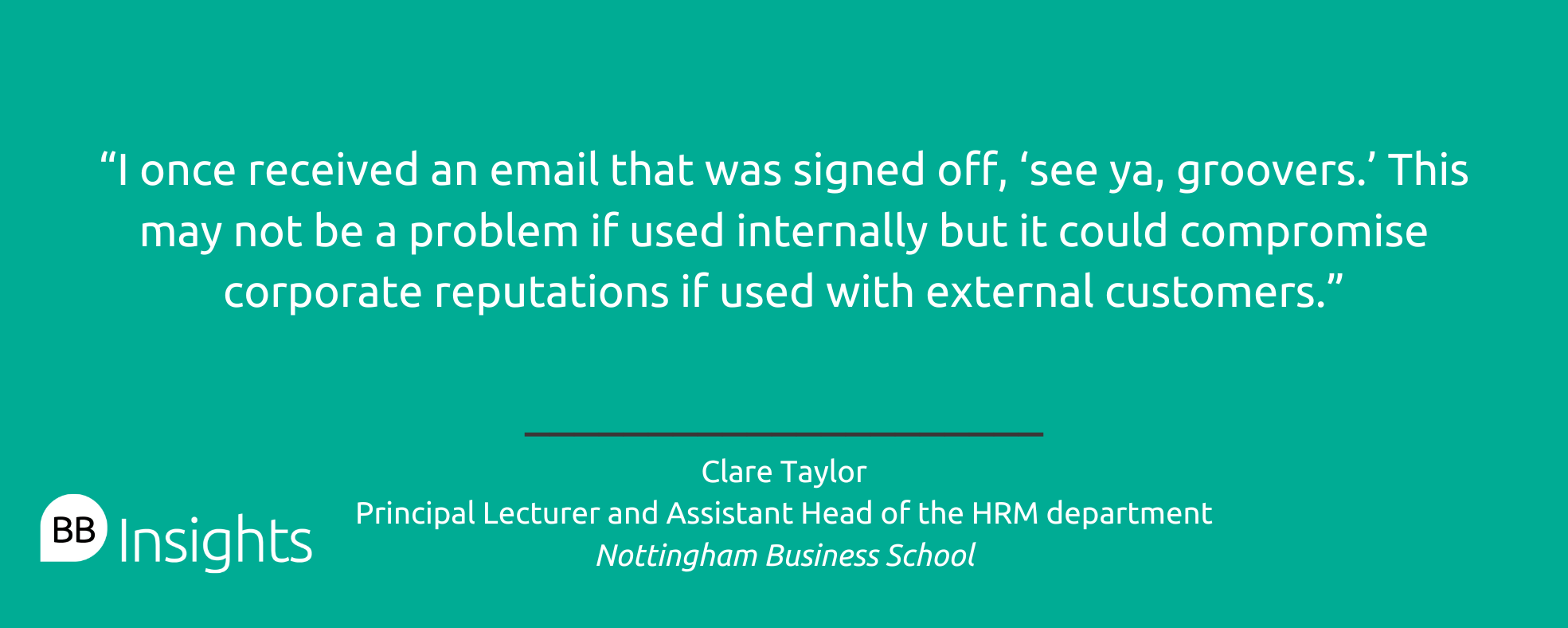Sick of copy-and-pasting ‘best regards’ at the end of every email? Gen Z certainly are. It may come as no surprise that the generation fronting trends such as quiet quitting, four-day work weeks, and dipping on job interviews has a new work-related revolution on the agenda.
Simply type ‘Gen Z email sign offs’ into TikTok and you’ll be transported into a myriad of the upcoming generation’s wittiest, weirdest, and most downright unhinged ways of signaturing an office email. Examples range from the tame (“fare thee well”, “keep it groovy”) to the mildly threatening (“cold regards”, “slay, serve, survive”).
What is driving the recent rise behind Gen Z funny email signs offs?
Claire Taylor, a lecturer in human resources at Nottingham Business School, regularly conducts research into workplace communications, and she believes that the trend of Gen Z email sign offs is largely the product of social media.
“Clearly, we have seen a rise in how employees, particularly younger employees, are more immersed in the use of [technology and social media],” she says. “This has led to a tendency to be braver in what we say in online settings. For example, rather than using yours sincerely co-workers may sign off using slang words.”
This isn’t necessarily a bad thing. Language and culture are constantly evolving—so why should it be different for the way we communicate at work?
For example, while the roughly 300-year-old ‘yours sincerely’ has been long seen as a gold standard sign off, a recent UK-based study has found that over a third of adults now view the phrase as outdated, with employees instead opting for less formal iterations such as “thanks!” and “thanks so much”.
Looking more specifically at the 18–24-year-old cohort (aka Gen Z), this becomes even more pronounced. An overwhelming 97% say they’re keen to display their personalities through their workplace communication—which includes writing spunky emails.
However, as Claire points out, this show of individualism can be taken too far: “I once received an email that was signed off, 'see ya, groovers.’ This may not be a problem if used internally but it could compromise corporate reputations if used with external customers.”
It’s an important point to raise. While it may seem like fun and games, Gen Z email sign offs that toe the line between playful and disrespectful risk not just upsetting the recipient, but also damaging a company’s reputation.
So where do you draw the line? We’ve pulled together some of TikTok’s most viral Gen Z sign offs and asked senior marketing lecturer at Sheffield Business School Dr Elizabeth Dempsey to give each of them an office appropriateness rating—as well as her expert opinion on how these would actually fly in a real office.
HR expert reacts to funniest Gen Z email sign offs
Gen Z email sign off #1: "Another day another slay"
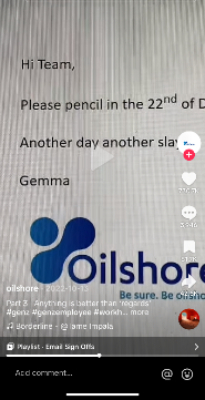
7/10 – It gives creative vibes and suggests that you are winning. However, make sure the audience is Gen Z, or they may miss the point.
Gen Z email sign off #2: "Yours unfaithfully"
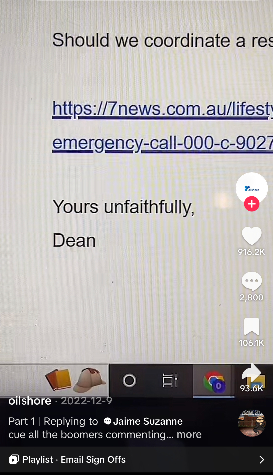
5/10 – It shouts dissatisfaction, so not one to use when emailing your boss.
Gen Z email sign off #3: "Unfortunately, I will be back tomorrow"
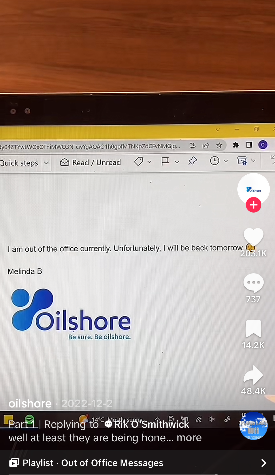
8/10 – Even though it suggests unhappiness at work, using humor can stimulate positive emotions and a fun work environment (if internal). If received by a client, stirring positive emotions can result in a positive attitude towards the organization—but some might see it as entirely unprofessional.
Gen Z email sign off #4: "This email was brought to you by caffeine and anxiety"
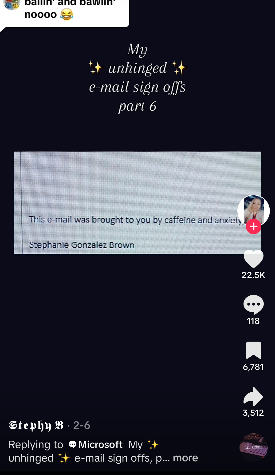
4/10 – Suggesting you need caffeine to get through the day is totally relatable but I’m not sure about anxiety. This could go either way.
Out of office video
I think the video is great, engaging, and interesting. It’s pretty light-hearted and fun but you need to keep your audience in mind as this is where the risk comes in. If the culture of your organization is relaxed, informal, and populated by Gen Zs then this could work (and if the same is true of the potential clients that might receive it).
However, this can be a problem if your organizational culture is more traditional, has members of staff from other generations, or you are client facing to multiple organizations who have a myriad of internal cultures. Then you could risk offending someone and ultimately damaging your organization’s reputation. The key is—like any communication—knowing your audience.
What is the best way to sign off on an email?
Fun internal email sign offs can potentially represent the relaxed culture within your organization and can be a source of entertainment and connection. External-facing emails need to have sign offs that you are confident would not be perceived as unprofessional.
What about an out of office sign off?
The same as the email sign off, understanding your audience, organization and its culture. However, you could use humor to express that you are taking a well-deserved rest without suggesting you don’t enjoy your job or that your organization isn’t a great place to work.
Is it ever appropriate to use humor in your email sign offs? If so, how should you go about it?
I think it can be, yes. Humor is a great way to connect with others, however it is subjective and what one person finds funny another could find offensive, so care and attention is needed. Light-hearted humor is the best way to go.
On another note, I do have a colleague who left an organization back in the 90’s and only told them via postcard from Hong Kong! So maybe Gen Zs aren’t the OG creators when it comes to informal communications!
A light-hearted funny email sign off sent in the right setting can certainly brighten someone’s day. And who knows? With the constant evolution of language, in another ten years, we might all be writing our very own Gen Z email sign offs.
Another day another slay ;)




